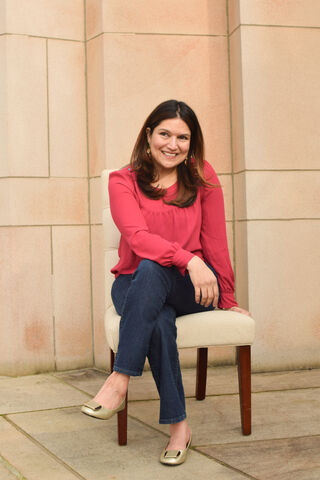Parenting
How to Raise a Feminist Son
Sonora Jha's new book has lessons for empowering boys to grow up into good men.
Posted May 4, 2021 Reviewed by Lybi Ma

I highly recommend Sonora Jha's thought-provoking and entertaining new book, How to Raise a Feminist Son. It's part personal essay, part journalistic inquiry, and part parenting lessons. I could say more, but instead here's my interview with the author:
Jennifer Haupt: Tell me about your own evolution as a feminist and a mom. What did the term "feminist" mean to you before having a son, and how did it change after you became a mom?
Sonora Jha: I say in the book that feminism was a feeling before it was a focus. When I heard of feminism as a young adult, I fell upon it with a hunger because it gave voice and meaning to so many experiences I had had as a girl that I could now see was a common experience of women and girls everywhere. Feminism started as a practice of resistance – to the patriarchy, to the minimizing of my voice and self, to the prescribing of my behavior. After I became a mom to a son, I became interested in masculinity and how feminism could rescue boys and men from a toxic kind of masculinity that harmed them, left them lonely, turned them violent, or minimized their human experience, such as when they are told that “boys don’t cry.” Feminism now means to me a solidarity, an expansive value system in which people of all genders and other intersections can thrive.
JH: When and why did it occur to you that raising a feminist son was an important piece of motherhood?
SJ: It started out of fear. I was afraid my baby would grow up to be a violent man like the men around me – my father and brother, in particular. I resolved to teach him to be gentle, to listen to the women and girls in his life, to draw gentle friends of all genders into his life.
The desire to raise a feminist son also came from a deep place of love for my boy. I wanted to protect him. Feminism was like asking him to put on a jacket to protect himself from the cold or like a song that he could sing and draw people to him because the song was of empathy and love and solidarity.
JH: How is raising a feminist son different than raising a feminist daughter, or is it?
SJ: Oh, it’s definitely different. In this day and age, I believe it’s even more important for boys to be raised as feminists. Girls and women have been powerful and empowered for generations. What we’re finding is that men won’t pass the mic or move over or get out of the way. We see this with presidential elections in the United States and in board rooms. When you raise a feminist son, you teach him how to be a follower and not always have to lead, you teach him to respect women’s bodies and ask for consent, you teach him to believe women’s stories, fight for equal pay, fight for women to have agency. You give him the gift of knowing that there’s plenty to go around and he doesn’t need to hoard power.
JH: How and why did you come up with the eclectic format for this book?
SJ: The book reflected and satisfied the different parts of who I am – a mother, a storyteller, a journalist, an academic researcher. I wanted to tell my personal stories but I also wanted to ask other people what they thought because I couldn’t possibly know how a black mother or white father or transgender son experiences parenting or feminism. And the “To Do” lessons serve as a “call to action.” I want to tell stories and I want to change the world; this book was my contribution to both of those ambitions. Also, my editor, Hannah Elnan, nudged me to lean into these formats.
JH: What is the one true thing you learned from your son about being a feminist?
SJ: I learned to keep growing and to keep expanding my feminism. I learned how to stand in solidarity with transgender people because my son speaks with such empathy about his friends' lives. I learn how feminism can get co-opted by capitalism because my son is a socialist and pushes me to examine those intersections. Yes, I learned to never get tied to one concept of feminism. And I learned to expect better from men because my son shows me it’s possible for men to do better.
Sonora Jha, Ph.D., is an essayist, novelist, researcher, and professor of journalism at Seattle University. Her new book is How to Raise a Feminist Son: Motherhood, Masculinity, and the Making of My Family. She is also the author of the novel Foreign, and her op-eds and essays have appeared in the New York Times, the Seattle Times, the Establishment, DAME, and in several anthologies. She teaches fiction and essay writing, and lives in Seattle.


